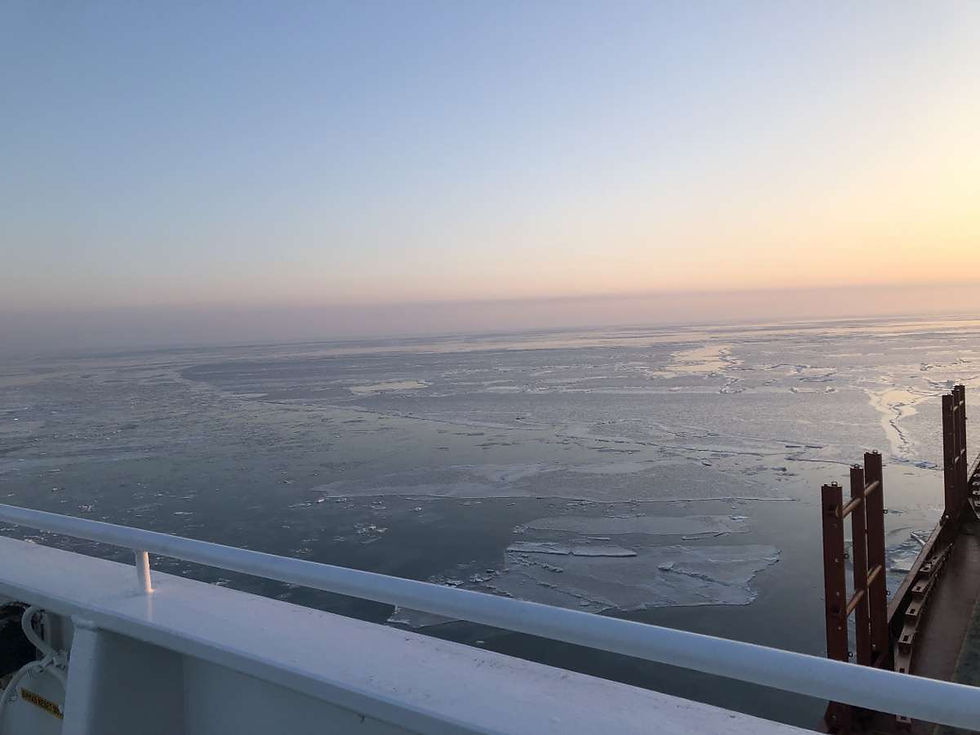Charterers Remained Liable For Stevedore Damages
- Nov 23, 2024
- 4 min read
Updated: Dec 11, 2024
The vessel was fixed under an amended GENCON 1994 to carry steels from Odessa to Karachi. The claim was against the charterer as damages for detention for delays at Odessa due to delayed departure for repairing the stevedore damages. Charterer denied liability and said that it was the Owners’ obligation to use maximum efforts to recover directly from the stevedores. They also argued that there was a delay by the claimants in making the claim.
During loading, a bundle was dropped by the stevedores resulting in damage and a puncture of the post side tank top in hold no 7, and damage to no 4 fuel oil tank( physical damage). The vessel completed loading on the same day 12 December and other part cargo on 15 December 17:30 hours.
Before her sailing, the physical damage had to be repaired. The stevedores arranged and paid for the repairs that completed on 18 December 23:00, and the vessel sailed on 19th December 01:40 hours. The Owners said that the vessel was detained for reason of the physical damage and consequent repairs from 14 December 20:00 till 19 December 01:40, a period of 4.24 days. The claimant used two different rates for calculating damages: USD 35,000 for the period up to 15th December and then USD 27,500 being the daily rate of hire and expenses which the Owners were paying in their capacity as time charterers under the head time charter.
The stevedore damage clause stated:
“stevedore damages, if any, to be settled directly between owners and stevedores w/out chrts interference. In case owners are unable to get such settlement, chrts to by all means assist in getting this settlement and remain ultimately responsible”
Charterers said that the absence from the charterparty of detention provisions means that they had no liability for the delay caused whilst the physical damage were being repaired.
Held,
The parties agreed that if the Owners were unable to obtain settlement of the stevedore damages, the Charterers were to remain ultimately responsible. In certain circumstances it was true that the absence of a contractual provision can be determinative of parties’ rights and obligations, but it did not necessarily follow that such an absence means that a party was relieved from liability. There can be no doubt that the loading ( free in terms) was at the risk and expense of the Charterers. In breach of the charterparty the damage was caused by the admitted failure or negligence of stevedores. It was obvious that there would be occasions ( such as those at Odessa) when the physical damage required immediate repair, which could delay either further operations on the vessel or departure.
It would be illogical if an Owner was expected to bear the cost of delay without the opportunity to seek recompense elsewhere. Indeed, such an outcome would be inconsistent with a charterparty regime which imposed the expense and risk of loading upon the charterers. Time sheets and a statement of facts show that the loading of the other cargo was not completed until 15 December 17:30, so the delay commenced at that point of time and not at 14 th December 20:00.
The period between 18th December 23:00 and 19th December 01:40 was occupied by the normal operations of obtaining port clearance- operations which would in any event had to have been undertaken if the vessel had been able to sail on a previous day. Therefore, this was not part of the detention claim.
Then, the Charterers said they were not liable because the Owners were under an obligation to exercise maximum endeavour to recover from the stevedores.
Held,
Unfortunately for the Charterers, there were no such words in the relevant clause. The clause required the Charterers “ to by all means assist” the Owners. So, if anything, the maximum endeavor was required on the part of the Charterers- a commercially sound approach in the context of a loading which was undertaken at their risk and expense. The evidence was that there were numerous discussions between the parties and that neither the Owners nor the Charterers were able to make progress with the stevedores on the question of compensation for the delay in sailing.
Furthermore, the Charterers said they could do no more despite what they described as their efforts to assist the Owners in every way.
Held,
On the evidence, the Charterers have used all means they could to assist the Owners. However, the use of those means did not discharge the Charterers from liability because, as the words of the clause state, the Charterers remained liable. Those words can only mean that if the Owners were not successful in effecting a recovery from the stevedores, then the Charterers would pay. Such a construction makes sense.
The other ground of defence was that the Owners delayed to present their claim for five months.
Held,
Even if the Owners had delayed ( and it found this was not the case as an invoice was sent to Charterers on 31th December) delay in itself was not a ground of defence. In any event the Owners were trying to obtain recompense direct from the stevedores, then some delay was inevitable.
Award accordingly.
LMAA SCP, September 2007 ( LMAA Full Member)- published in Jus Mundi | AI-Powered Search for International Law & Arbitration
Editor's Note: See also London Arbitration 4/87 (and commentary in Voyage Charters about LA 4/87) involving recovery from Stevedores.
The featured picture is indicative and unrelated to the dispute in this arbitration.


